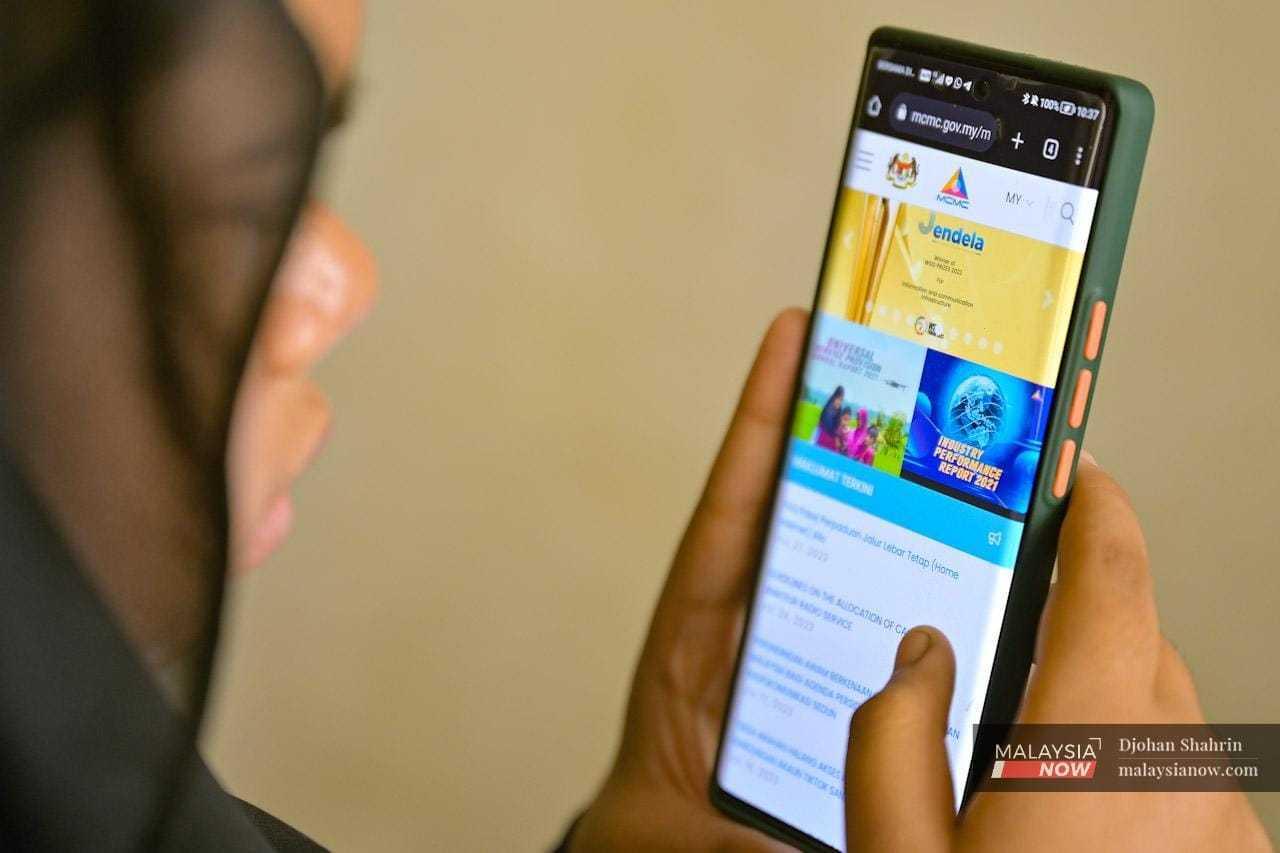Embattled MCMC defends media curbs, cites 'societal harmony'
The internet regulator says it is legally bound to stop the spread of 'misleading information'.
Just In
The Malaysian Communications and Multimedia Commission (MCMC) has fought back against criticism over its recent curbs on media in the country, accusing news outlets of "spreading misleading information or intentionally publishing inaccurate content" which it said posed a threat to "societal harmony".
"To combat these issues, MCMC remains resolute in executing its regulatory obligation to ensure the integrity of information and maintain societal harmony," the internet regulator said in a statement hours after a group of prominent newsmen warned the commission against returning Malaysia to the past practice of curbing press freedom.
Eight senior journalists and media owners had warned the commission against playing the role of "Big Brother" in the wake of a series of clampdowns and restrictions on media outlets in the country, saying it was a reminder of the practice by past administrations to shut down critics and please the political elite.
"What is more worrying is the fact that much of the so-called 'offending' content is mere reports and opinion pieces deemed critical of the government," said a joint statement signed by prominent journalists Johan Jaaffar and A Kadir Jasin; former Bernama chairman Azman Ujang; former editors-in-chief of Bernama, Yong Soo Heong and Zakaria Wahab; as well as veteran media activists Hussamuddin Yaacob, Chamil Wariya, and G Manimaran.
"We absolutely cannot accept any attempt to use government agencies like MCMC to question, censor, or block portals and online news content."
In its response, MCMC said the commission was duty-bound to regulate the communications and multimedia industry, adding that this includes its role to ensure that online platforms do not break Malaysian laws.
"MCMC is guided by the provisions of the Communications and Multimedia Act 1998, which entrusts the commission to carry out its functions," it said.
It also defended action to tackle the spread of "false information, offensive content, and defamation".
"In recent times, there has been an alarming increase in news reporting that lacks responsibility, sensibility, and accuracy. Some of the news outlets have been found irresponsible in spreading misleading information or intentionally publishing inaccurate content."
MCMC also said that with the rise of user-generated content, ethical reporting had taken a back seat, adding that this made it difficult to distinguish fact from fiction.
The commission came under scrutiny in the wake of a series of access bans on news portals as well as requests to social media platforms to take down content critical of Prime Minister Anwar Ibrahim's administration.
In June, Communications and Digital Minister Fahmi Fadzil, who has jurisdiction over MCMC, came under fire after news portal MalaysiaNow was blocked for 48 hours. MCMC did not respond to repeated requests for an explanation.
Last month, another current affairs site, UtusanTV, operated by former staff of the now-defunct Utusan Melayu media company, was likewise blocked.
MCMC was also behind the access bans on the Malaysia Today website run by government critic Raja Petra Kamarudin, as well as a blog specialising in corporate and financial sleaze run by former DAP MP Wee Choo Keong.
A judicial review filed by Wee to challenge the ban will be heard tomorrow at the Kuala Lumpur High Court.
In the latest such curbs, MCMC blocked TV Pertiwi, an online news site specialising in short videos and political podcasts.
Following a meeting with MCMC, TV Pertiwi revealed that MCMC had imposed a condition for it to remove six pieces of news content in exchange for lifting the ban, a request it rejected.
Subscribe to our newsletter
To be updated with all the latest news and analyses daily.
